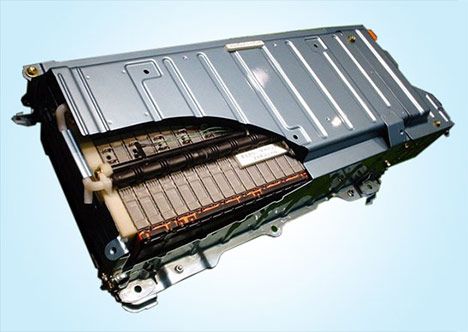Nickel-Metal-Hydride Batteries for Plug-in Hybrid Vehicles Improve Energy Density
- 26/07/2015
- Transport
- Posted by Tessa Romarez
- Leave your thoughts
Distinctions have been clearly set when it comes to the use of nickel-metal-hydride batteries.
They will now be utilized exclusively for plug-in hybrid vehicles, at least those that are made by Toyota.
So far, Toyota is the top auto maker in the world when it comes to the use of the nickel-metal-hydride batteries. And because Lithium-ion cells are batteries that have sufficient density in terms of energy, they are ideal for use by the bulkier plug-in hybrid and battery-electric vehicles.
Actually, such a designation of battery types to various EV models has always been the norm for the last couple of years. However, as researchers and battery tech experts are able to improve the energy density of nickel-metal-hydride cells, this might be great news, and the result that the BASF chemical supplier wants to get.
At a Technology Review article by Kevin Bullis, he discussed the possibility of NiMH cells having 10 times energy density compared to conventional battery cells, making them highly practical for plug-in car use.
The goal is having a cost per kilowatt-hour lower than $150, which is better than the cost of commodity-format cells distributed by Tesla Motors and Panasonic after they are manufactured at the currently-constructed Nevada gigafactory.
The BASF research is focused on the modifications of nickel-metal electrodes microstructure.
The changes will render the unique structure stronger. It means that less amount of the nickel-metal electrode will be utilized, making the cells highly strong.
It is assured that while even less quantity of the nickel metal electrode is utilized, it will still produce the same power. The researchers at BASF had already come up with NiMH cells that possess twice the energy density of ordinary cells, which brings them to about 140 watt-hours a kilogram.
It is below the 230 watt-hours of the superior Li-ion cells available today. Still, the lightweight characteristic of these cells is negated by two factors.
The first is the fact that lithium-ion cells are easy to deteriorate over time, at a rate faster than NiMH cells. Li-ion battery packs should have extra cells in order to compensate for such a loss.
NiMH batteries are also safer in terms of internal parts and chemistry compared to Li-ion type. This is because of the absence of liquid electrolytes that can spill or leak in case of an accident.
Safety measures are needed in order to prevent any added weight to the battery beyond that of the lighter lithium-ion cells. Still, researchers at BASF continue to find out ways that will further improve their cell’s energy density.
They maintain the ultimate target of improvement in capability, which is ten times more than the present nickel-metal-hydride battery. At any rate, lithium-ion type of battery is still considered to be the favourite for most battery electric vehicles.
The research performed at BASF only emphasizes all the efforts being done by research and development all over the world.
And since batteries are bound to experience continuous evolution, this is great news for the industry. In the end, plug in electric cars and their owners will be the ultimate beneficiaries.

